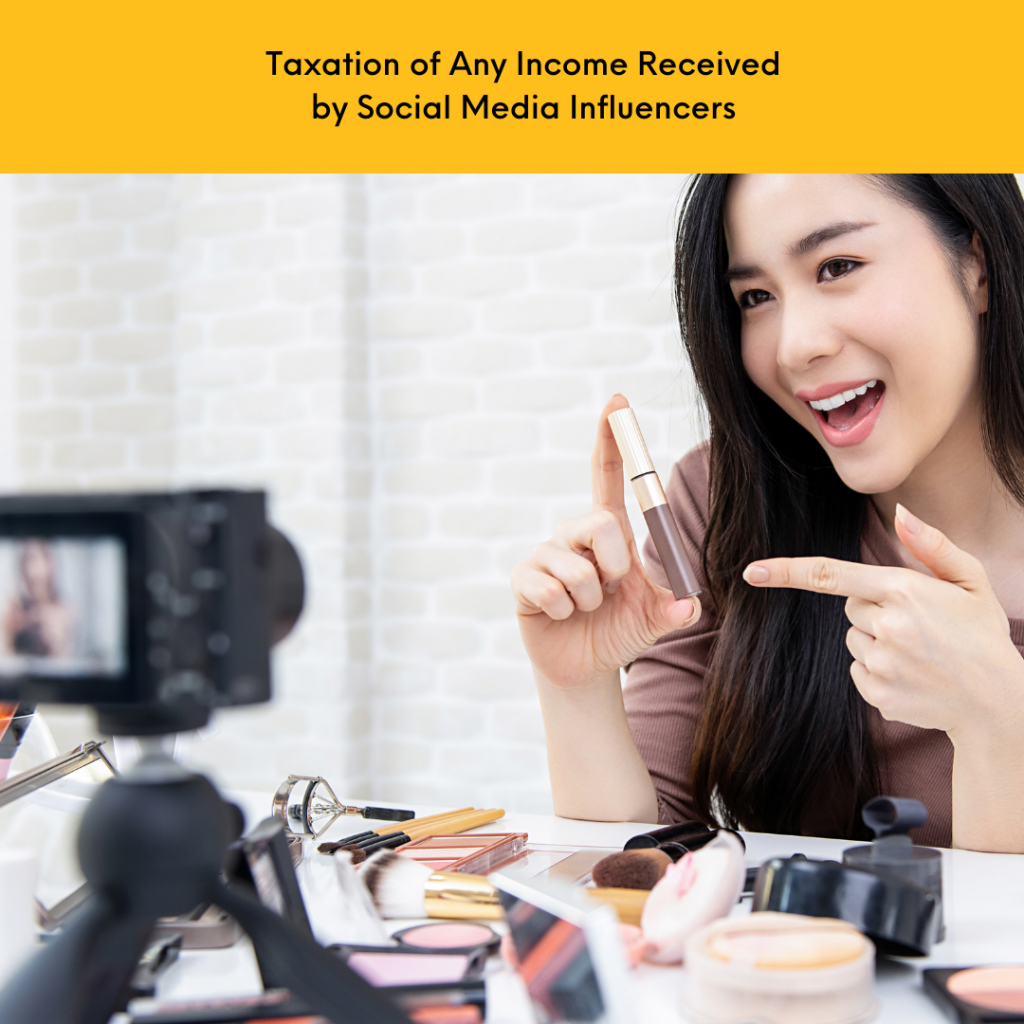

Published 20 August 2021, The Daily Tribune
The social media has become a most powerful tool in the area of advertising. It has evolved from simply a social networking avenue to a marketing platform, where prominent individuals bank on their popularity and following to promote certain causes, events, and products. In most cases, these “influencers” receive income for their service, akin to advertising revenue of traditional media platforms.
Under such scenario, the Bureau of Internal Revenue (BIR) issued Revenue Memorandum Circular (RMC) 97-2021 on the Taxation of Any Income Received by Social Media Influencers last 16 August 2021. With the advent of social media marketing and the need to ensure that income stream from this industry is properly taxed, the BIR has deemed this the proper timing to clarify the tax obligation of such social media influencers.
The regulation defines “social media influencers” as those receiving income, in cash or in kind, from any social media sites and platforms (YouTube, Facebook, Instagram, Twitter, TikTok, Reddit, Snapchat, etc.) in exchange for services performed as bloggers, video bloggers or “vloggers” or as an influencer, in general, and from any other activities performed on such social media sites and platforms.
Under RMC 97-2021, social media influencers are liable to pay income tax and Percentage or Value-Added Tax (VAT), unless exempted pursuant to the provisions of the National Internal Revenue Code (NIRC) of 1997 or the Tax Code. Individual social media influencers are classified as self-employed individuals or persons engaged in trade or business as sole proprietors for taxation purposes.
The BIR outlined the following income as business income of social media influencers, irrespective of the manner or form of payment:
• YouTube Partner Program, where the influencer gets ad revenue from display, overlay, and video ads, channel membership, merch shelf where followers can browse and buy official branded merchandise from the influencer’s watch pages, Super Chat and Super Stickers where followers pay to get their messages highlighted in chat streams, and YouTube Premium Revenue.
• sponsored social and blog posts
• display advertising, similar to radio commercials because it interrupts the program
• becoming a brand representative/ambassador
• affiliate marketing, where for every conversion resulting from the said link or code, the influencer will earn a commission
• co-creating product lines
• photo and video sales
• podcasts and webinars
In case of free products or property received in exchange for the service, the taxpayer must declare the fair market value of the product as income. Income treated as royalties in another country, including payments under the YouTube Partner Program, shall likewise be included in the computation of the gross income of the social media influencer and shall be subjected to the schedular or corporate tax rates. Resident aliens are also liable for any income derived from Philippine-based contents.
Aside from income tax, social media influencers are also liable for business tax either in the form of percentage or VAT. This depends on the range of income: If gross receipts of the individual taxpayer does not exceed the VAT threshold of P3,000,000, the taxpayer has the option to avail of the eight percent tax on gross sales or gross receipts and other non-operating income in excess of Two hundred fifty thousand pesos (P250,000), as opposed to the graduated income tax rates and percentage tax under the Tax Code.
For mixed income earners, or those with income from salaries, business and/or profession, are taxed under Sec. 24 (A) (2) (a) of the Tax Code for all such income and may avail of the same 8 percent tax rate upon meeting the threshold above.
Standard allowable deductions directly attributable to, the development, management, operation and/or conduct of the trade, business or exercise of a profession as provided in the Tax Code are allowed. However, they must be directly and exclusively related to the production or realization of the income and can be substantiated with sufficient evidence, such as BlR-registered receipts and invoices.
Whether an individual, corporation or partnership, social medial influencers must register with the Revenue District Officer (RDO) over the place where the head office is located, in case of a corporation, or over the place of their residence, in case of individuals. They must ensure that their registration reflect their existing line of business and to keep books of accounts duly registered with the BIR.
Those who willfully attempt to evade the payment of tax or willfully fails to make a return, to supply accurate and correct information or to pay tax shall, in addition to the payment of taxes and corresponding penalties, be held criminally liable under the Tax Code.
With the issuance of RMC 97-2021, we can expect social media marketing to become more structured and streamlined with tax compliance affecting not just the social media influencers but also the advertisers availing their service and the social media platform providing income, like YouTube, for instance.
Taxes are indeed the lifeblood of government, hence the matter of taxation reaching the social media spaces and online platforms was bound to happen any time. Now that it has arrived, we can only hope that government income raised under this measure adequately supplements the country’s needs during this pandemic, and is put to good use.
For comments and questions, please send an email to cabdo@divinalaw.com.

